BRIGHT VOLUNTEERS. ROSTYSLAV RADYSH
I've been volunteering longer than 2022, since about 2016. But before the war, I was more involved in social activities and youth politics — marches, rallies, protests, and the civilians' perception of this. In 2013-2014, I participated in the Revolution of Dignity.
Later, I joined volunteer initiatives in my hometown and did an internship in the public sector. Together with the Ministry of Youth and Sports, we implemented a personal and professional development project for young people to involve them more in the state-building process.
I received several large grants, including from the UN and U-LEAD, with the help of which my team and I implemented a solution that aided in the development of good neighborliness in apartment buildings in the Donetsk and Luhansk regions.
Change of activity
When the full-scale invasion started, my team and I changed our line of work a bit. I am the head of a non-governmental organization that already has a skilled team of 20 people with whom we have shared many victories and challenges.
In one of the projects we were working on before the full-scale war —"Say hello from west to east!" — we collaborated with the city council and Lviv schools to make drawings, sign flags, and then go to the east and deliver them to the military.
On February 24, I received a call from the city council and was told that I needed to find a dozen volunteers to coordinate refugees and fill out refugee lists. Then I created a volunteer chat in Lviv and gathered thirty thousand people to coordinate.
Thus, on the first day of the war, we created a city volunteering headquarters. Our mayor also gathered the public sector to decide on a further action plan. For example, we organized drivers who picked up refugees from the train station and took them to their new homes.
In the first weeks of the full-scale invasion, I mostly acted as a communicator and was the source where people got news about what was happening. We helped find housing, transport people, and solve all the additional issues. We also started raising money for the needs of the military, and from February to March we raised 3.5M hryvnias.
In March, I started participating in volunteer missions. The first two were to the Kyiv region, then starting in May and throughout the summer I went to the east several times. I also took part in the Kharkiv region operation as a volunteer. We were probably among the first to go there. In fact, when we went there, there was only a two-hour difference between our military going there and us going there. We even saw Russian tanks still burning there.
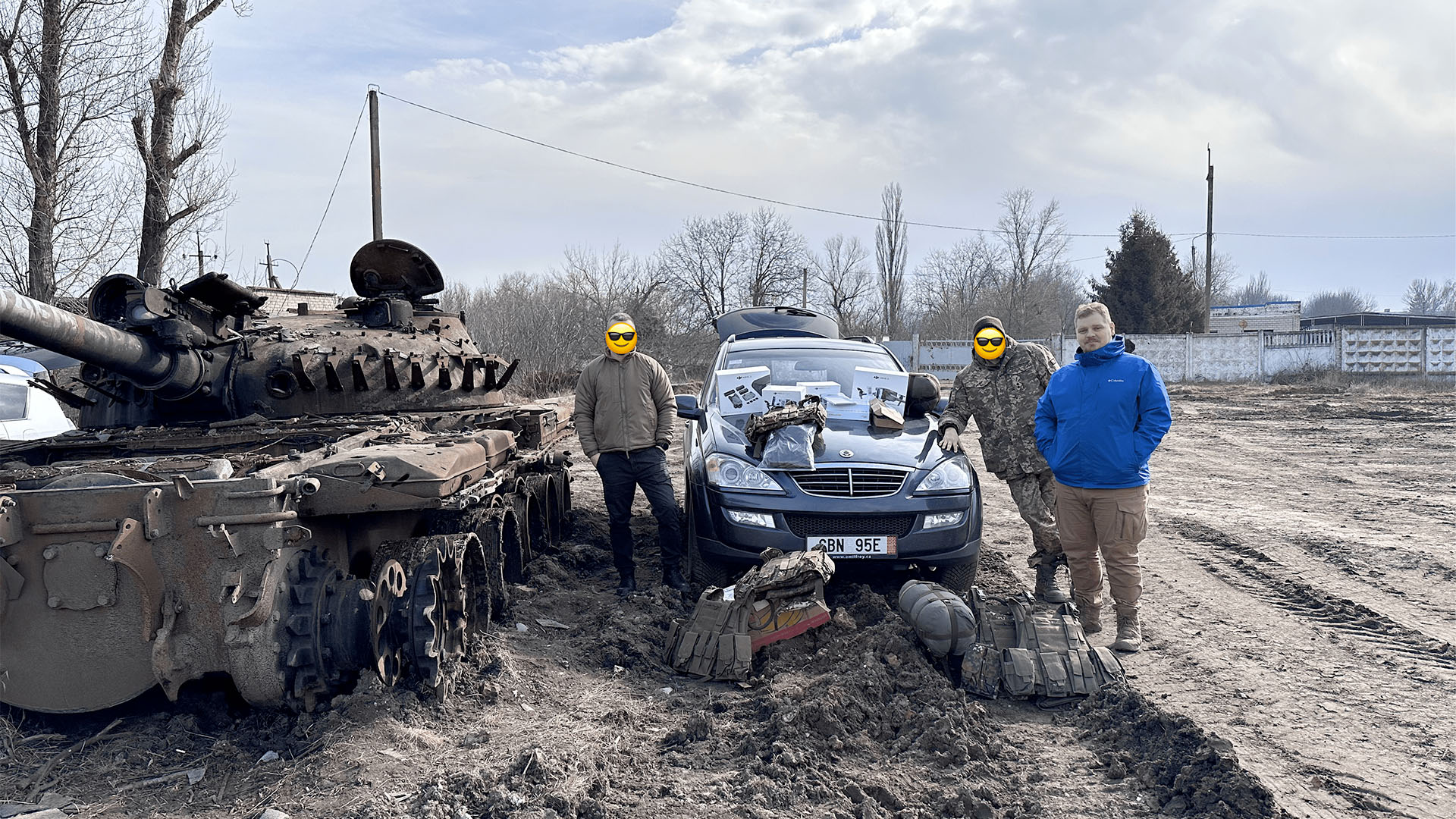
It was the same in Kherson. I think we were one of the first volunteers there. It was announced on Friday night that Kherson was liberated, and we already went there on Saturday morning. Our last two trips were to Bakhmut, one of them — on St. Nicholas Day.
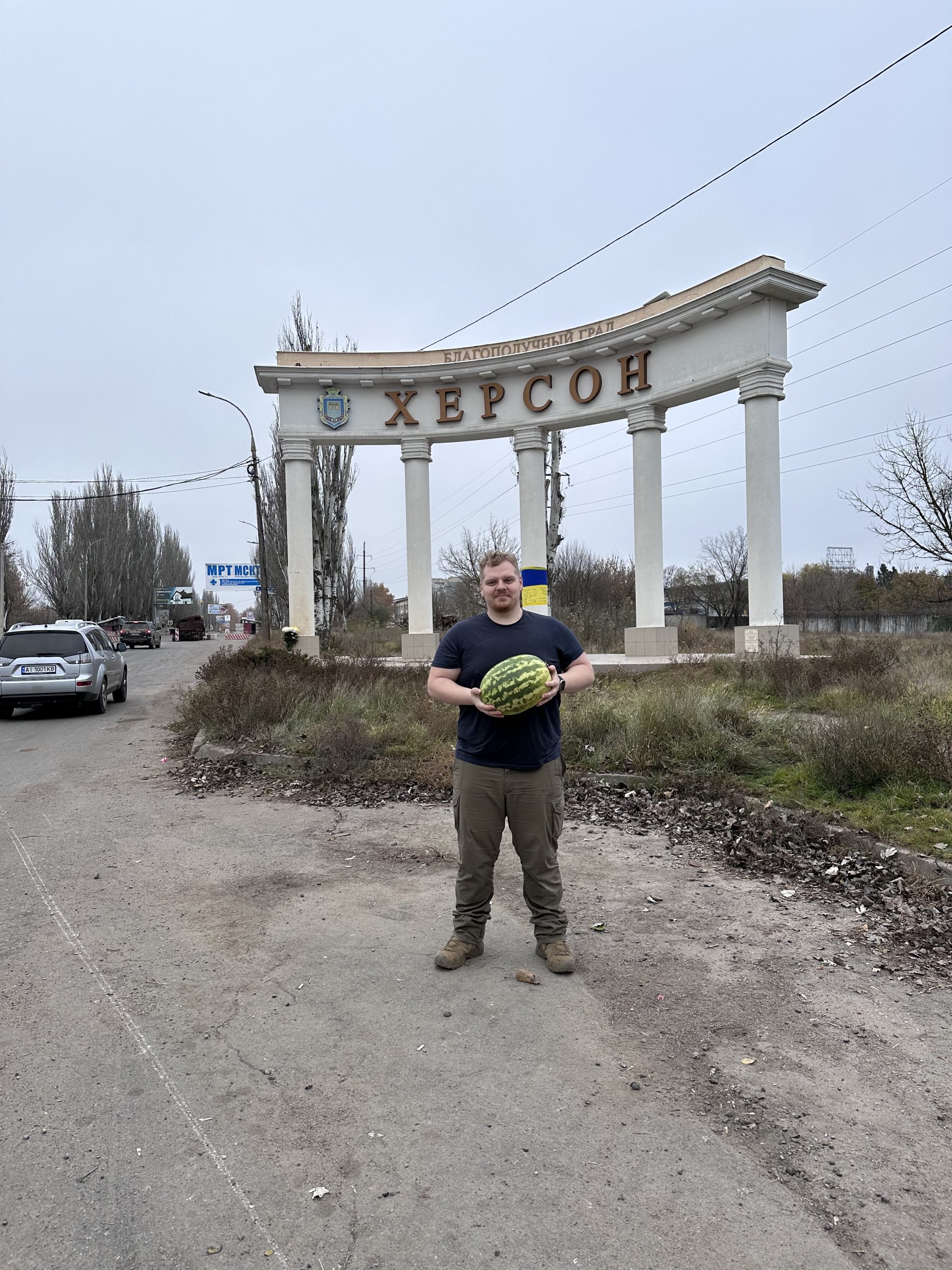
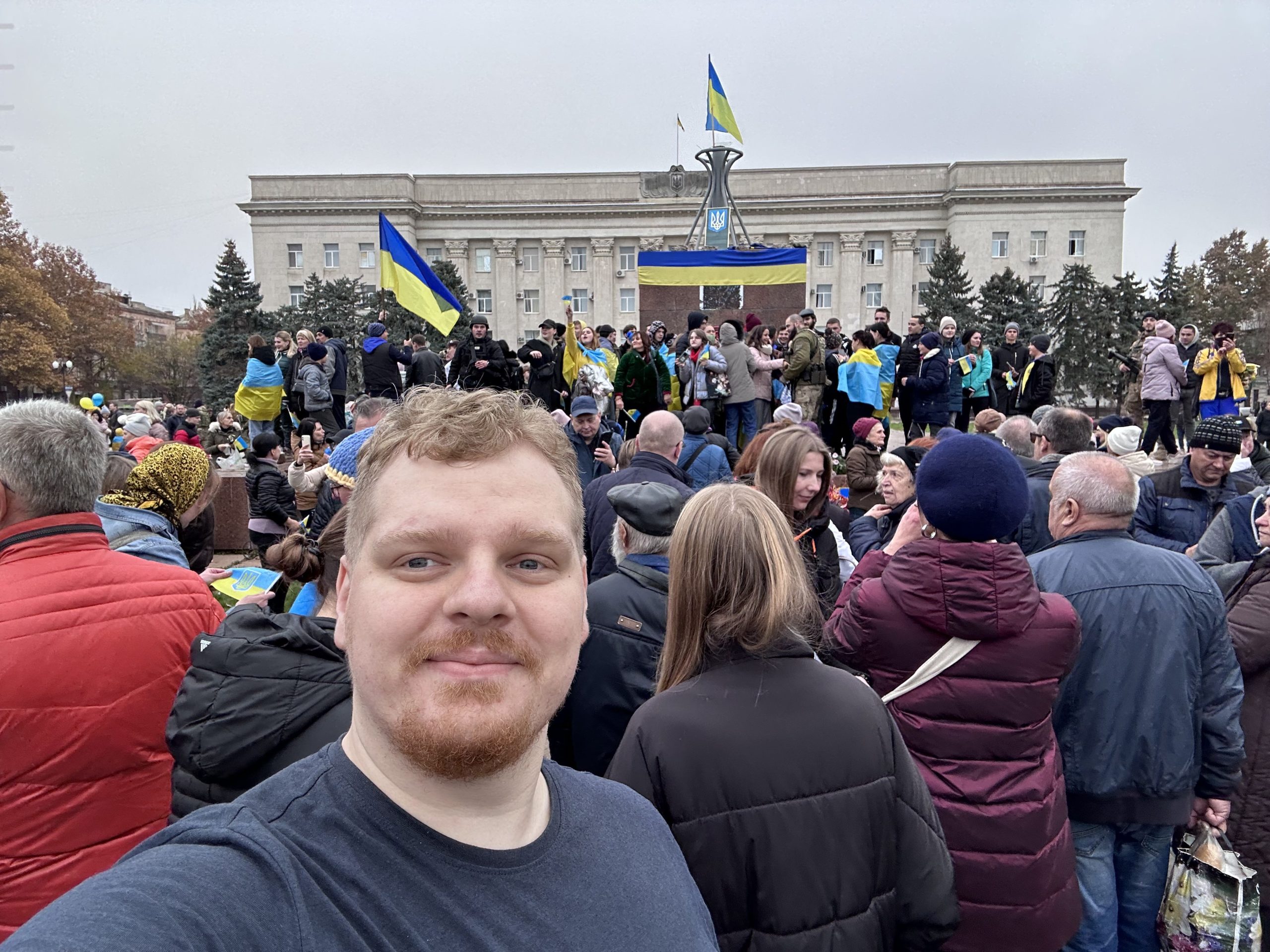
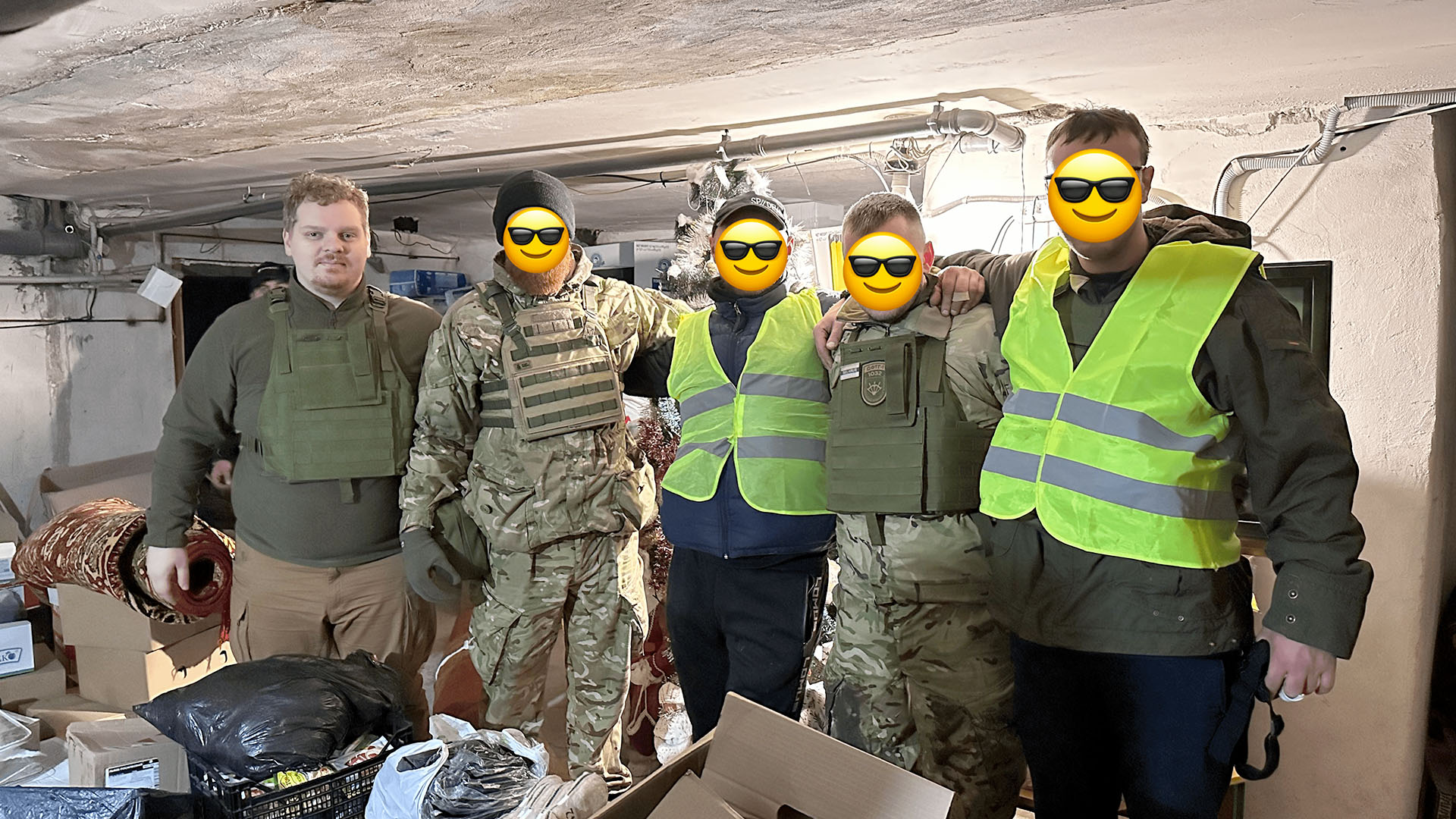
What we did
I brought 24 cars to Ukraine (at the time of the interview). They were either gifted to give to someone who needed them, bought with my own money, or bought together with friends. At the moment, we have several cars waiting for us in the Czech Republic and Poland.
Also, one of the biggest achievements is that we have brought in about 600 tons of humanitarian aid. This includes everything from food and medicine to 248 solar panels.
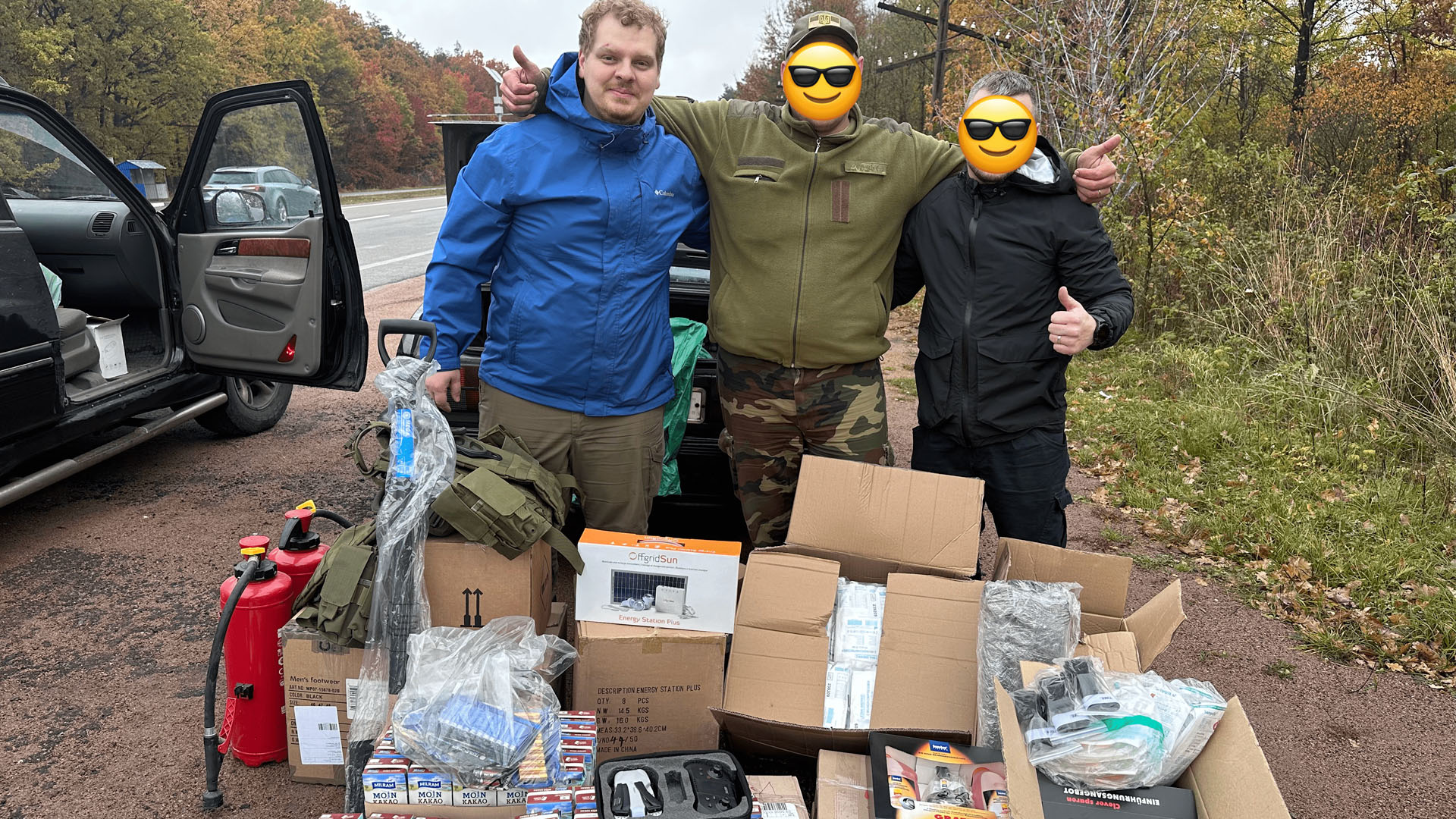
In March, no one knew how to properly transport humanitarian aid from Poland to Ukraine. And we had already brought twelve buses of it on the third day of the war. Even before the full-scale invasion, I had a network of connections with state-owned businesses and the public sector in Ukraine, so I was able to negotiate with the heads of Ukrainian and Polish customs. We drove into the neutral zone and transferred things from one bus to another, so that technically no one was leaving.
In general, I had a lot of volunteers, for example, students with whom I had worked before. And people were ready to stay awake because they realized that they would be doing important things from morning to night. For many, volunteering was also an opportunity to get into a great team of people with whom they had something to talk about.
One more reason is McDonald's :) This is because they closed down and didn't sell anymore, but they brought us their products and ingredients until June, when they ran out. This was a kind of food for the volunteers.
Another interesting thing is that Netflix was making a movie about volunteers, about the military in general, about the situation in Ukraine, and I was also involved. I was actually interviewed by many people during that time: Deutsche Welle, The New York Times, PBS, and many Ukrainian publications.
Also, since December, we have held three exhibitions in Lviv of broken military vehicles that we brought back from the east. Or I personally have the remains of missiles, Russian uniforms, dry rations, even Russian condensed milk. We show it all with these vehicles.
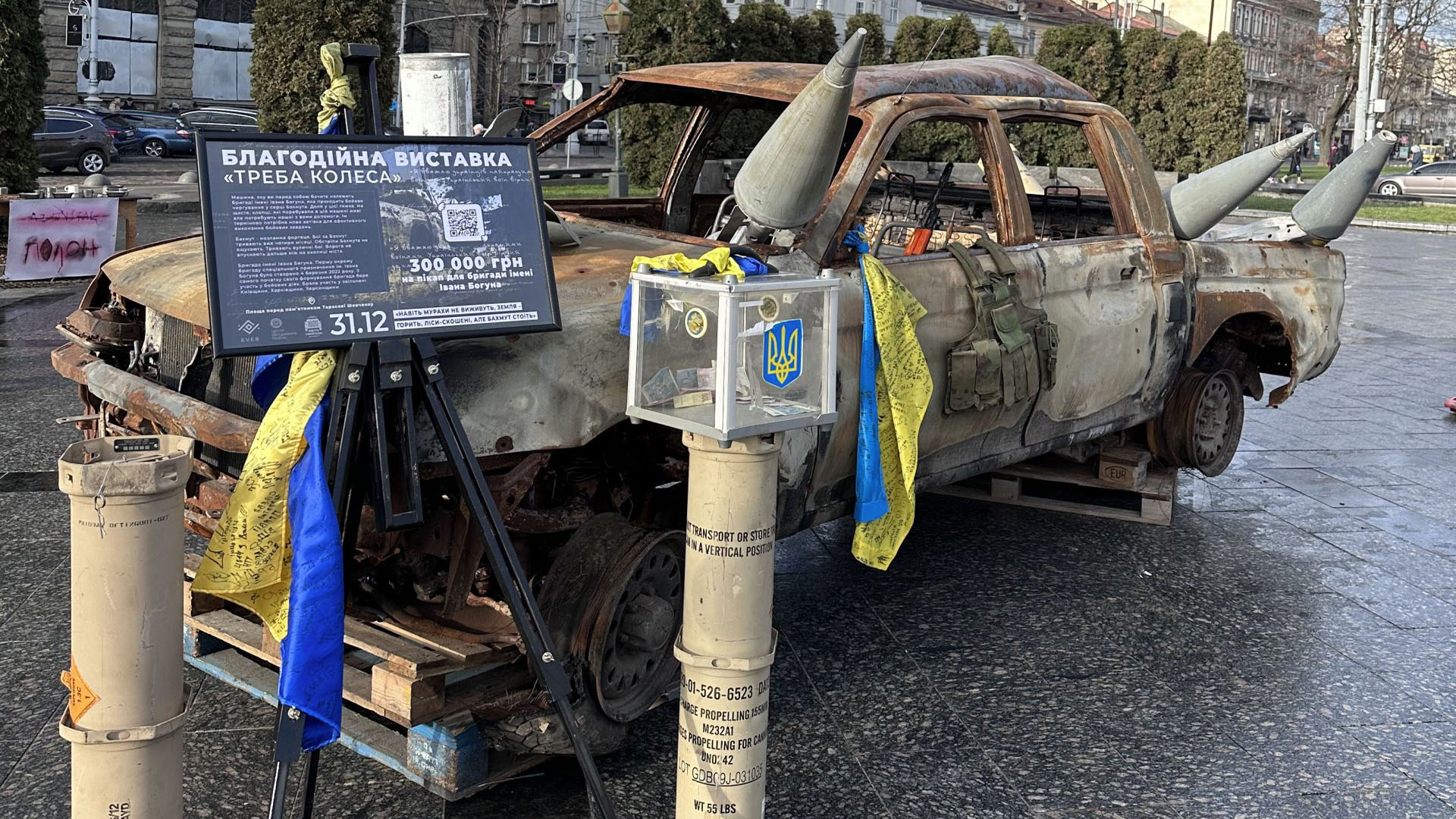
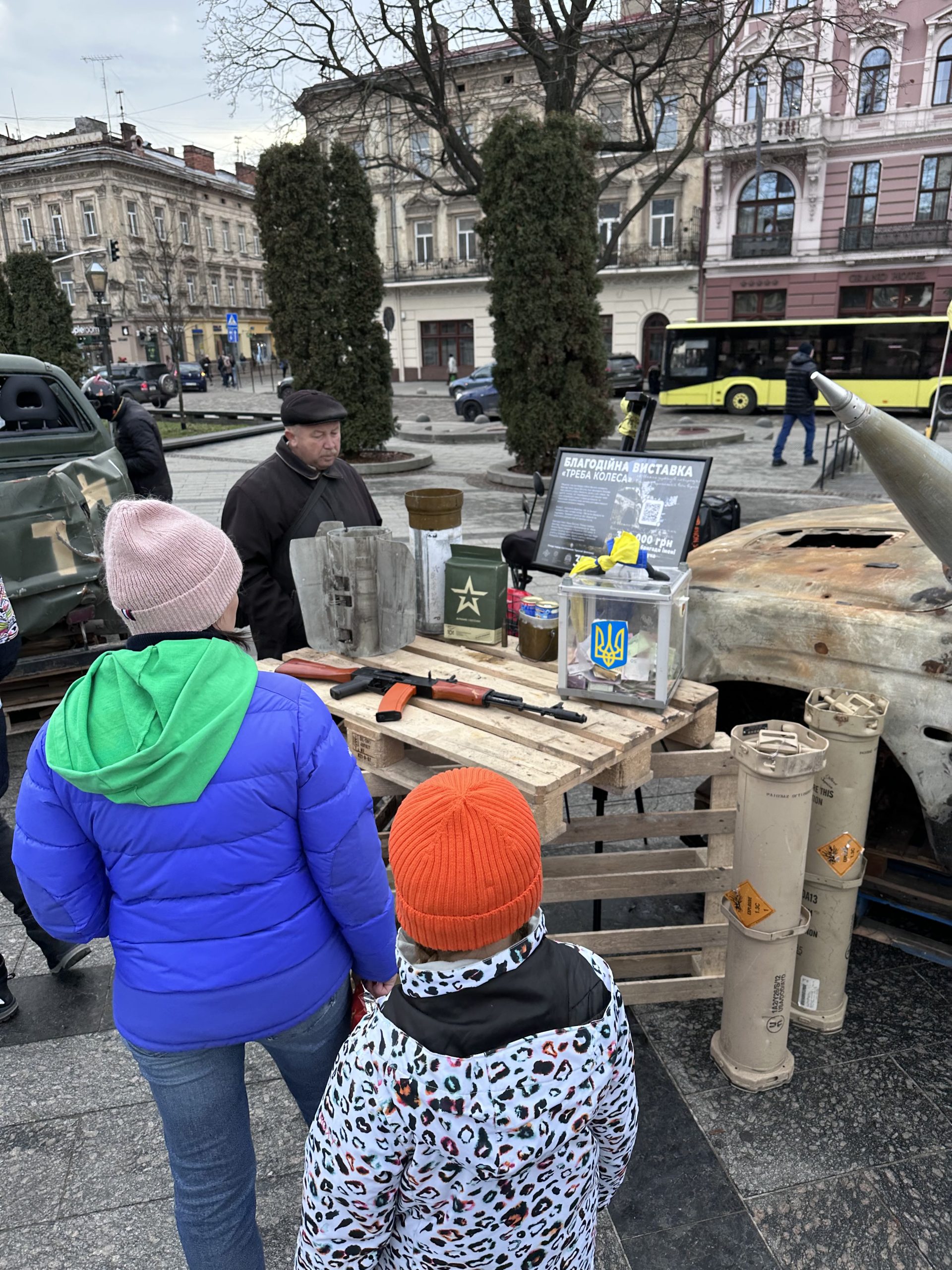
In December and February, we held charity concerts in one of the largest shopping centers in Lviv to raise funds. In December and January, we also held caroling events with a girls' choir. And, accordingly, we used the money to buy various things for the military. Now these girls are on tour in Europe, and the city council and I are planning to organize another exhibition of broken equipment at the end of the month — we want to bring a tank from Kramatorsk.
Challenges of volunteering
The biggest challenge of the first weeks was that I received a huge number of calls and messages. And if you don't respond to a message within 15 minutes, people start calling you. In total, this year, we have posted 35,000 messages in our volunteer chat about either someone looking for help or someone who can provide it.
I could get about 800-1,000 Telegram messages in one day and about 1,500-2,000 calls a day. And of course, the most difficult thing was to coordinate everyone. For example, I know people who can provide vans in Lviv, and I get calls from a military unit saying that they need a van. But these people don't know each other, so they need to exchange phone numbers and get acquainted first.
Therefore, my main task was to give everyone a job and to connect people with each other in the right way so that everyone felt involved. Everyone knew what they had to do, and everyone understood why they were doing it.
Also, in the early days, when it was not possible to leave Lviv customs, but things needed to be transported, there were mishaps with drivers. I told them that they could take it through in another way. Many people also did not have curfew passes, and the city council did not want to issue them to everyone.
I called the head of the Lviv police, and he gave us permission to drive during curfew but at our own risk. On the second day of the war, I already had 16,000 people in my volunteer chat, and everything depended on whether I said that it was okay for them to go.
Then the city council resolved the situation, but people were still afraid. So, I had to go with them to set an example that everything was fine. I even filmed videos and said that I would control who went and who did not. And people really liked it, it was a kind of gamification process, and drivers were no longer afraid.
It was also very difficult at first to travel to the de-occupied territories or the frontline. I saw burning tanks and cars and a lot of dead and injured people. When I came back, I just drank for a few days. But then I went back to work, because I know what my goal is, and that people need my help.
Strange requests
The soldiers also wanted food from McDonald's at some point. But they didn't really understand what we needed to do: go to Poland and back, then go from Lviv to the east or send it by Nova Poshta. But soon people realized that your task consists not only of buying and delivering something but also of involving a lot of people and resources to do it. Then everyone starts looking at such requests differently.
There were times when people said: "Well, we are volunteers, let's buy an ATV." But you need to understand whether it is really needed and what it will be used for. Because people take risks and do everything for a specific purpose. Then the person submitting the request begins to treat it differently.
Another interesting item is — I didn't even know these things existed — gloves specially made for drone operators. It's this long thing, and a person can put their hands in it with the drone remote control and operate the drone while staying warm. It's very cool, and it's great that it was invented and produced in Ukraine.
Not one of my requests, but something unusual that happened — I saw volunteers transporting a helicopter on a tow truck. Or I saw the news that the Lviv scout organization bought an armored personnel carrier in Poland and brought it to Ukraine. This is very big — our people really can do anything :)
Recommendations for burnout
Finally, a few tips on how to avoid burnout both in volunteering and in life in general:
- Know why you are helping, have a specific goal
- Don't do everything yourself — have a team and do rotations
- Find time for rest
If you combine these rules, you'll stay motivated to volunteer. It's also cool to see what others are doing and realize that you can add something to it. Together, we will definitely win.